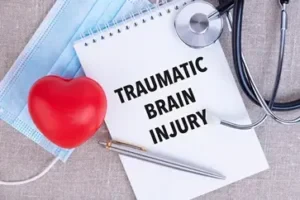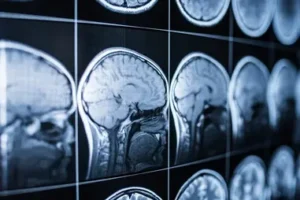
While any serious accident can lead to long-term emotional and physical difficulties, traumatic brain injuries (TBI) in particular often interfere with nearly every aspect of a victim’s life. Work and social hurdles caused by a head wound are especially tragic because, in many cases, they didn’t need to happen at all. TBIs often arise from negligent behavior when people don’t uphold their basic duty of care. Whether your injury occurred due to a premises liability issue, a vehicle collision, or some other accident, there are a variety of coping mechanisms that can help you come to grips with your new normal while seeking compensation from the at-fault party.
Different Types of Traumatic Brain Injuries Lead to Different Effects
Exactly how you are injured plays a large role in what kind of negative effects you will need to overcome in the months and years following the accident. Brain injuries can be caused by falling objects at work, suffering wounds in a car or boat crash, hitting your head against an object when slipping and falling, or a number of other ways. Traumatic brain injuries in Louisiana are frequently caused by:
- Bicyclists or pedestrians struck by a vehicle
- Boating and other maritime accidents
- Bus and commercial truck collisions
- Car, motorcycle, or SUV crashes
- Slip and falls
- Sports injuries
- Workplace incidents
Damage to the brain typically occurs from a sudden physical impact or when oxygen is deprived to the brain in a drowning incident. In any accident type, a victim could suffer from:
- Closed brain injuries – you can experience serious damage to different areas of the brain even if nothing physically penetrates the skull when you hit the ground or collide with a steering wheel.
- Coup-Contrecoup injuries – this type of closed injury occurs when the brain strikes the side of the skull and then bounces back and hits the other side, often resulting in bruising or bleeding.
- Diffuse axonal injuries – when sudden movement forces the brain to violently move in the skull, such as from a car or truck crash, that motion can create a shearing effect that tears large portions of the brain’s surface.
- Penetrating wounds – these injuries involve an object physically fracturing the skull bone and actually stabbing into a portion of the brain, which can cause extreme repercussions if the victim survives.
Because there is so much opportunity for a closed head wound in any given accident, it is critical to see a doctor after any kind of car crash, workplace accident, or injury in a private residence. A trip to the ER not only helps to find and address the problem early, but is also crucial to establish a paper trail on your injuries so you can hold the negligent party responsible through litigation.
Emotional Effects of a Traumatic Brain Injury
Whether suffering a closed or penetrating head wound, victims can end up dealing with an extremely wide range of long-term problems. On the emotional side of the equation, Louisiana TBI survivors may experience issues with:
- Anger that is disproportionate to the situation
- Anxiety
- Depression
- Inappropriate outbursts
- Persistent irritability
- PTSD
- Unexpected mood changes
Cognitive Difficulties After a Traumatic Brain Injury
In addition to those emotional struggles, any brain injury has the distinct possibility to interfere with normal cognitive processes used in everyday life. A head wound may cause severe difficulties with:
- Basic problem solving
- Controlling impulses
- Comprehending written or spoken words
- Concentration
- Depth perception and judging distances between objects
- Following multi-step instructions
- Frequent confusion
- Ignoring objects and people on either your left or right side
- Sense of time
- Recalling previous memories or forming new memories
- Understanding social cues
Physical Impacts From a Traumatic Brain Injury
Depending on the specific type of brain injury and which lobe or hemisphere of the brain was impacted, victims can also experience drastic physical changes like:
- Balance and coordination issues
- Difficulty swallowing
- Epilepsy
- Chronic fatigue
- Long-term pain
- Loss of (or major changes to) senses like touch, taste, smell, hearing, and vision
- Paralysis
- Problems with bladder and bowel control
- Tremors and uncontrollable muscle movements
Injured on Someone Else’s Property?
Know Your RightsOur expert premises liability lawyers will help you hold negligent property owners accountable.
Get a Free Case Evaluation
504-500-1111Coping With the Effects of a Brain Injury
Obviously, any of these issues may prevent you from working a steady job or functioning in social settings. While there aren’t permanent cures for brain injuries, there are methods for mitigating or overcoming many of the symptoms by:
- Adapting expectations. Be prepared to admit your limitations and seek help from caregivers, family members, and close friends for assistance with normal, everyday tasks.
- Acquiring mobility assistance. You may need a wheelchair or cane after a TBI, and local organizations can offer transportation if you can no longer drive safely.
- Looking for programs and support groups. Federal and state programs are available to help people with disabilities caused by traumatic brain injuries, while local support groups can offer tips on coping with life changes from other survivors.
- Managing stress and avoiding triggers. When dealing with physical and cognitive issues, you may not be able to complete all the same tasks as before the accident. Learn to take breaks and avoid stressful situations to prevent additional problems.
- Working with therapists. Speech and language therapists can help overcome cognitive problems, while occupational therapists help develop strategies to deal with the effects of the injury while seeking employment.
- Consulting an attorney. You will likely struggle with both normal monthly bills and overwhelming medical costs while handling the extreme changes brought by the injury. Talk to an experienced attorney to bring a personal injury lawsuit against the negligent party who is responsible for your pain and suffering.
Talk to a Trial-Ready Louisiana TBI Lawyer
An attorney can assist by investigating the accident, locating the best source of compensation, gathering evidence to present in court, and offering guidance to protect yourself from common defense tactics used to avoid paying what you are owed. Call or message us today so we can learn about your injury and find out of the Scott Vicknair law firm is the right fit for your situation.
